- Sunday, 21 September 2025
An Intriguing Read Without Flaws
"FRUITS OF THE BARREN TREE," penned by Leknath Chhetri, offers readers a deep exploration of the hardships faced by the people of Darjeeling as they strive for their distinct identity. The narrative unfolds in the picturesque village of Relling, a community held in the grip of the Green Party. This political entity is at the forefront of the Gorkhaland movement, an ardent call for a separate state catering to the Nepali-speaking Indian population.
However, this fervent pursuit of autonomy puts the Green Party on a collision course with the Red Party, the reigning political force in West Bengal. The clash of ideologies ignites simmering tensions between these two formidable factions. The novel begins with the scene of Basnet on his deathbed, looked after by his old wife. It’s only a matter of time before Basnet dies. Within months of her husband’s death, Basnetni, too, departs to join him. Then the author takes us to the past, and thus begins the story. Basnet, a famous chakra, is accused of casting a love spell on his disciple. After the talk spreads like wildfire, Basnet suggests to his disciple that she come and marry him so that they can together draft a new chapter of their lives. She agrees, and the couple elopes to a place called Relling, where they build a modest shelter to live and dream of a better tomorrow. Since they own no land or property, they rely on Mandal’s field to secure two meals daily. Of whatever quantity they yield, a large portion goes to Mandal. The hardship doesn’t end there for Basnet. Like Basnet, a handful of sharecroppers work for Mandal to make a living, and all these people see each other as competitors. Basnet is an unlucky man. At times, he falls prey to the adverse weather, while his fellow villagers deceive him at other times. The author hasn’t, for once, sprinkled a pinch of happiness into Basnet’s life. To make the novel more realistic, author Chhetri should have given some happy moments to Basnet. No matter how tough life is, there will always be happy moments. The author has overlooked this basic truth about human life. The first few chapters cover the misfortune and struggle endured by Basnet.
When the author introduces Basnet’s son into the novel, one can guess he will also lead a tough life. Jhuppay, Basnet’s son, is sure to suffer more as he is not as virtuous as his father. He is a hoodlum who always looks to steal one thing or another. He has developed all the bad habits in childhood itself, and he carries them into his youth. If there’s anything that Jhuppay truly wants, it’s Nimma and her love. Nimma has tender feelings for Jhuppay, although she doesn’t like his eccentric ways.
The novel showcases the sudden changes inflicted upon the village after the Gorkhaland movement starts gaining momentum. Banke Pandit, a politician everyone respects, loses his power once the Green Party appoints Chhyatar as an area convenor of Relling to proceed with the movement. Everyone is supposed to support the Gorkhaland movement, and those who don’t will be buried alive. Chhayatar was an ordinary man before the movement. Now, everyone dreads Chhyatar, who mills about the village with Ashok Magar to inspect if someone is doing something against the movement. The Green Party has also developed homemade guns to fight with the Red Party.
Jhupay, who is well into his youth, has bought a microphone set to make a living. He has been doing well, and everyone is convinced that Jhuppay has become a decent man. One day, the Red Party asks him to rent out his microphone set for their program. Before agreeing to their demand, Jhuppay goes to Chhyatar to seek permission. Chhayatar permits Jhuppay to rent out the microphone set, but this incident causes upheaval in Jhuppay’s life. Chhayatar issues an order to behead Jhuppay for helping the Red Party. Jhuppay runs away from the village once this information reaches his ears. After disappearing for over a month, Jhuppay returns home but is soon kidnapped by Chhayatar and his people. When the Green Party abducted Jhuppay from his home, everyone thought that Jhuppay would not be spared alive. But surprisingly, the Green Party doesn’t kill him; instead, they train him and use him to their advantage. For Jhuppay, nothing is more important than his life, and he can follow every command to save it. On the other hand, the Green Party suspected that Mantay (Nimma’s father) had been betraying them by disclosing internal matters of the Green Party to the Red Party. Mantay himself has no idea whose party he belongs to. While in the village, he claims to be taking the side of the Green Party. While he crosses the river to work at Lingia Tea Garden, he switches sides and says he is of the Red Party. Everyone knows that Lingia Tea Garden is fully under the control of the Red Party. When suspicions grow about Mantay, the Green Party concludes that he should be killed. The Green Party assigns Jhuppay to kill his lover’s father. Jhuppay has only two options: either kill Mantay or get killed himself. Jhuppay chooses the former, and later he discloses this truth to Nimma. This shows how an individual can get stuck in a complex situation and still choose themselves over others. This book offers an intriguing read, particularly appealing to those who relish stories set in rural landscapes. Before delving into this novel, my knowledge of the Gorkhaland movement was quite limited, but it provided me with valuable insights into this significant historical event. The prose employed throughout the book is refreshingly straightforward and easily comprehensible.
However, it is worth noting some areas where the author falls short. One notable drawback is the author's apparent disinterest in fully fleshing out certain characters, such as Gentleman-Baje, Shikhari-Baje, and Checkpost Boju. These characters, while intriguing, seem to lack substantial contributions to the overarching plot, leaving readers wanting more depth and development.
One perplexing aspect that left me bewildered was the rationale behind Chhayatar's betrayal of Jhuppay. The author provides a scant explanation, leaving readers to interpret the motives independently. This ambiguity can be a source of frustration for those seeking a clearer understanding of character dynamics. Despite the book being a translation from Nepali to English, the translator deserves commendation for skillfully preserving the nuances of the original text. Reading it, one could easily assume that the book was originally penned in English.
(The author is a writer from Pokhara.)



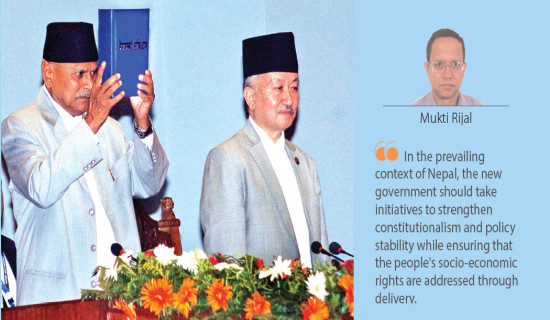
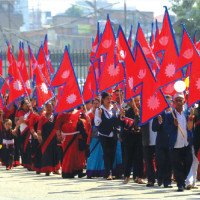
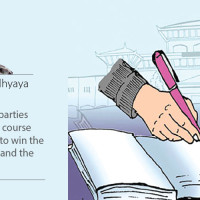

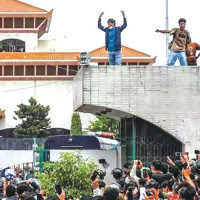


-original-thumb.jpg)
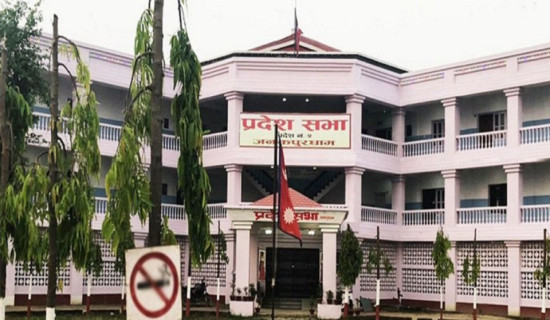

-original-thumb.jpg)
-original-thumb.jpg)
-original-thumb.jpg)
